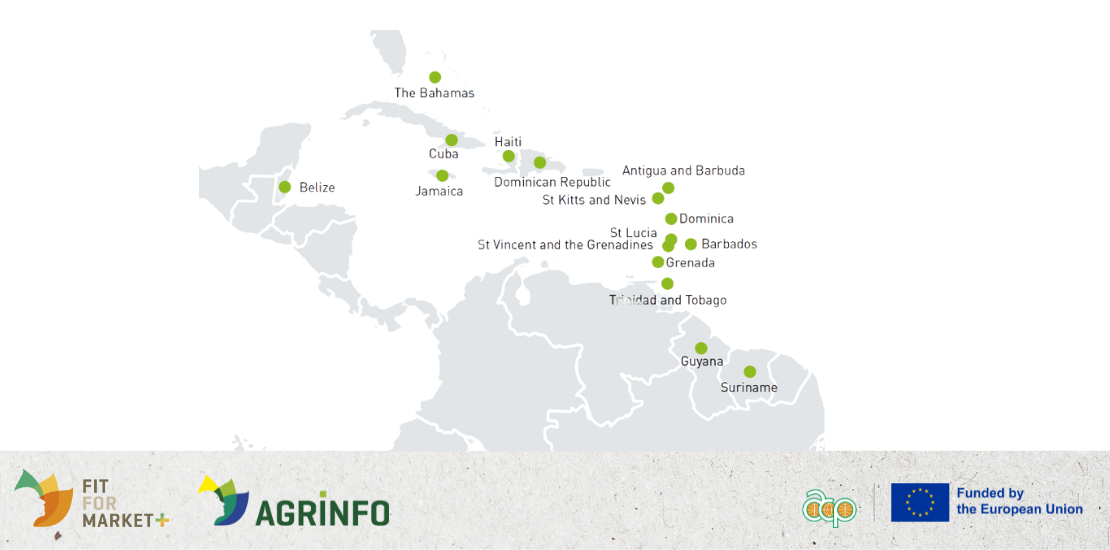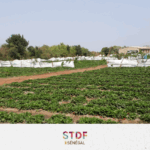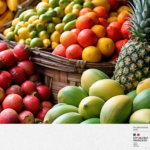Informing, raising awareness and inspiring agripreneurs: a seminar on market access in the Caribbean
- 22/02/2024
- Posted by: Sandra Borma
- Category: News

The way in which products are sold and marketed can have a considerable impact on the growth and sustainable development of a business. To penetrate a regional or international market, producers have to compete with producers from all over the world. What’s more, when exporting, certain legal and commercial requirements mean higher operating costs. Hence the need to adopt a diversified market strategy based on an understanding and specific positioning on local, regional and international markets.
Through its programmes, COLEAD regularly organises information and awareness-raising workshops for small and medium-sized producers and exporters, as well as trade associations, to provide them with (i) practical information on markets and (ii) accessible tools to better grasp trends and opportunities and understand the regulatory, commercial and logistical requirements of these markets.
As part of the Fit For Market Plus (FFM+) and AGRINFO programmes, COLEAD and the Georgetown Chamber of Commerce and Industry (Guyana) organised a specific information seminar on market access conditions for exporters of fresh and processed fruit and vegetables on 1 February. Some forty companies and trade associations from the Caribbean region attended the workshop, which looked at international trade in Caribbean agricultural and food products in a global context, and more specifically at the requirements of the EU market. These private sector players are generally active on the local/regional market, but few of them are already exporting to the international market, particularly the EU.
The seminar covered the following topics:
- Positioning the Caribbean in the global evolution of agricultural and food production and trade.
- Trends in Caribbean agricultural imports and exports, and more specifically horticultural products (the main finding was the steady increase in imports of potatoes (processed or fresh from the Netherlands, Canada and the United States), beans from China and Canada, tomato-based products from Chile and China, and garlic from China and Spain). Another finding is that, against a backdrop of falling exports, Europe remains attractive as the main export market, ahead of the United States.
- Focus on markets and opportunities linked to the diaspora and the regional/local market (import substitution, tourism, e-commerce, etc.).
- Focus on opportunities on international markets (pineapple, avocado, mango, etc.), healthy and exotic products, ready-to-eat products, etc.
- Focus on regulatory, commercial and logistical requirements for accessing the European market, with detailed information on each aspect and tips for continuous access to practical information (particularly via AGRINFO). More specifically, this focus covered: regulatory requirements on contaminants, pesticides, MRLs, food safety, plant health, labelling and packaging, commercial requirements in terms of quality, sizing, presentation, etc., private certification, buyers’ requirements in terms of social and environmental responsibility, standards in this area, specific regulations for organic farming products and, finally, recommendations on logistics.
- COLEAD resources: presentation of all the tools available and potential support via COLEAD programmes likely to facilitate access to markets.
Each topic was the subject of discussion and interaction with the participants, which made it possible to address the concerns of operators less accustomed to distant export channels. For those who were unable to attend the seminar, or who are interested in this information and awareness session on market access, particularly in the EU, the recording is available here and the presentation is available here.
These activities are supported by the Fit For Market Plus (FFM+) and AGRINFO programmes. The Fit For Market+ programme is implemented by COLEAD as part of the development cooperation between the Organisation of African, Caribbean and Pacific States (OACPS) and the European Union. The AGRINFO programme is implemented by COLEAD and funded by the European Union (EU).
This communication has been produced with the financial support of the EU and OACPS. The contents are the sole responsibility of COLEAD and can in no way be taken to reflect the views of the EU.





